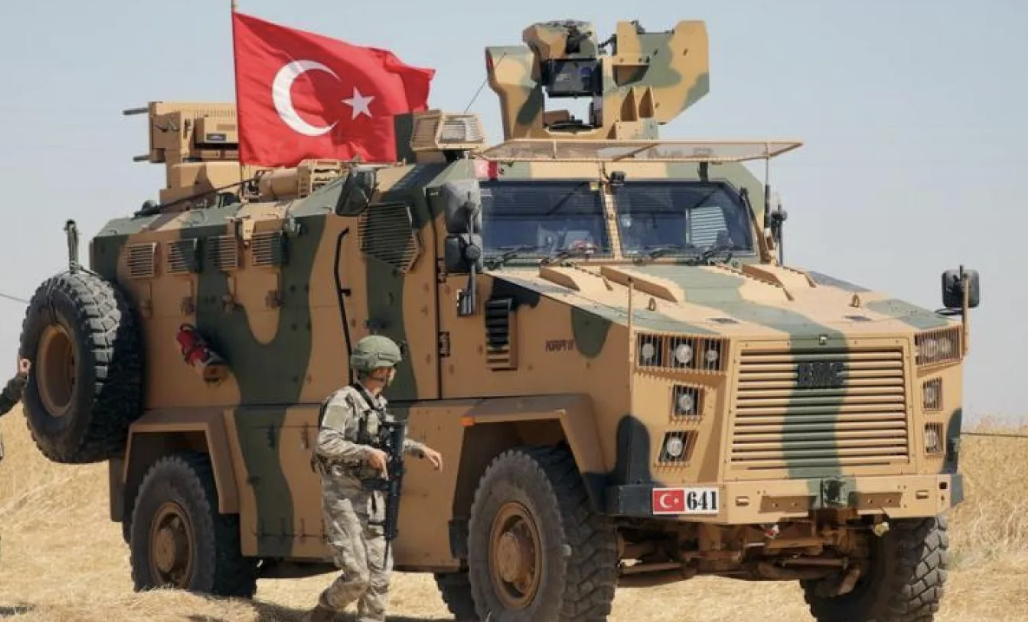Israel, Turkey Hold Quiet Talks to Prevent Clashes in Syria
 syria
syria
According to a report by the Qatar-aligned news outlet Middle East Eye, Israel and Turkey have recently engaged in talks over establishing a “deconfliction line” to avoid direct military confrontation between their forces operating in Syria.
The move comes after a series of Israeli airstrikes targeting Syrian military infrastructure, aimed at preventing the Syrian regime from acquiring advanced weapons—either left behind by Russia or stored from pre-Assad forces.
Last week, the Israel Defense Forces (IDF) carried out strikes on several locations in Syria, including Hama Air Base and Tiyas (T4) Air Base—the latter of which is rumored to be under possible Turkish control.
According to two Western officials cited by Middle East Eye, Israeli Prime Minister Benjamin Netanyahu informed his security team that Israel had a limited window to target T4 before Turkey could establish military assets there.
Once Turkish forces are positioned at the base, Israeli military planners would be forced to remove T4 from their list of permissible strike targets.
Turkey reportedly intended to use T4 to deploy surveillance and attack drones as part of its ongoing operations against what it terms “terrorism” in Syria—a label often referring to Kurdish-controlled areas.
 Concerns Over S-400 and Turkish Air Defense Systems
Concerns Over S-400 and Turkish Air Defense Systems
Several Israeli analysts believe Turkey may coordinate its air defense infrastructure with the Syrian regime. The planned deployment of advanced air defense systems, including the Russian-made S-400, has heightened concerns in Tel Aviv and Washington.
Middle East Eye reported Turkey plans to install a “layered air defense system” at the T4 base, capable of defending against aircraft, drones, and missiles with short-, medium-, and long-range components.
Although the U.S. and Israel believe the S-400 poses limited risk to F-35 stealth jets, it could still endanger older F-15 and F-16 aircraft routinely used in the region.
 Iran Angle: Israel’s Access to Strategic Airspace May Narrow
Iran Angle: Israel’s Access to Strategic Airspace May Narrow
The deployment of Turkish forces—and particularly air defenses—at T4 could cut off key air corridors previously used by Israel for strikes on Iranian targets in Syria.
Israeli officials are concerned that this shift could complicate any future operations targeting Iran’s nuclear infrastructure, especially as tensions remain high following the October 7 Gaza War.
 Coordinated Statements Hint at Deconfliction Efforts
Coordinated Statements Hint at Deconfliction Efforts
One of the sources told Middle East Eye that “Both Israeli and Turkish officials released identical statements on the same day, saying they do not seek conflict with one another in Syria.”
This synchronized messaging is seen as a deliberate attempt to signal de-escalation and establish military boundaries in an increasingly crowded and complex Syrian theater.
 Geopolitical Shifts: Turkey-Syria Coordination Raises Eyebrows
Geopolitical Shifts: Turkey-Syria Coordination Raises Eyebrows
Turkey’s expanding presence in Syria—particularly following the fall of the Assad regime in December—has led to increased coordination between Ankara and Damascus on security matters.
However, this development has raised alarms in Israel, where officials are wary of President Recep Tayyip Erdoğan’s increasingly combative rhetoric toward Israel, both before and after the Gaza conflict erupted in October.


